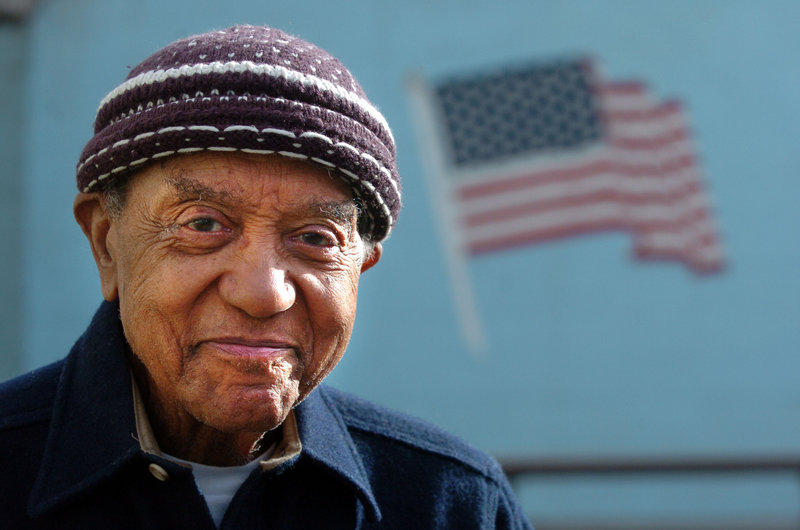ST. MARIES, Idaho – Vernon Baker, who belatedly received the Medal of Honor for his role in World War II, died at his home near St. Maries, Idaho. He was 90.
Baker died Tuesday of complications of brain cancer, Benewah County coroner and funeral home owner Ron Hodge said.
Then-President Bill Clinton presented the nation’s highest award for battlefield valor to Baker in 1997. He was one of just seven black soldiers to receive it and the only living recipient.
“The only thing that I can say to those who are not here with me is, ‘Thank you, fellas, well done,”‘ Baker told The Washington Post after the ceremony. “‘And I will always remember you.”‘
In 1944, 2nd Lt. Baker was sent to Italy with a full platoon of 54 men. On April 5, he and his soldiers found themselves in behind enemy lines near Viareggio, Italy.
When concentrated enemy fire from several machine gun emplacements stopped his company’s advance, Baker crawled to one and destroyed it, killing three Germans. Continuing forward, he attacked an enemy observation post and killed two occupants.
With the aid of one of his men, Baker attacked two more machine gun nests, killing or wounding the four enemy soldiers occupying these positions. Then he covered the evacuation of his wounded soldiers by occupying an exposed position and drawing the enemy’s fire.
On the following night, Baker voluntarily led a battalion advance through enemy mine fields and heavy fire.
In all, Baker and his platoon killed 26 Germans and destroyed six machine gun nests, two observer posts and four dugouts.
He said later he felt the company commander, who said he was going to get reinforcements, had abandoned his group of men. “It made me all the more determined to accomplish our mission,” he told the PBS series “American Valor.” “Because at that time the Army was segregated. It was thought that we were unable to fight.”
No black soldiers were awarded the Medal of Honor during World War II, although Baker did receive the Purple Heart, a Bronze Star and Distinguished Service Cross.
In 1993, U.S. Army officials contracted Shaw University in Raleigh, N.C., to determine if there was a racial disparity in the way Medal of Honor recipients were selected. The university researchers found that there was, and recommended 10 soldiers to receive it. From that list, Pentagon officials picked seven.
But there was one problem — the statutory limit for presentation had expired. Congress was required to pass legislation that allowed the president to award the Medals of Honor so long after the action.
Vernon Baker was the only recipient still living; the other six soldiers received their awards posthumously, with their medals being presented to family members.
Reflecting on life in a segregated Army unit, he told The Washington Post, “I was an angry young man. We were all angry. But we had a job to do, and we did it.” He added, though, that he “knew things would get better, and I’m glad to say that I’m here to see it.”
Send questions/comments to the editors.



Success. Please wait for the page to reload. If the page does not reload within 5 seconds, please refresh the page.
Enter your email and password to access comments.
Hi, to comment on stories you must . This profile is in addition to your subscription and website login.
Already have a commenting profile? .
Invalid username/password.
Please check your email to confirm and complete your registration.
Only subscribers are eligible to post comments. Please subscribe or login first for digital access. Here’s why.
Use the form below to reset your password. When you've submitted your account email, we will send an email with a reset code.